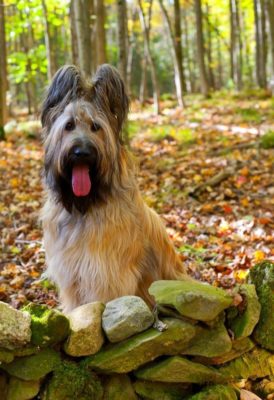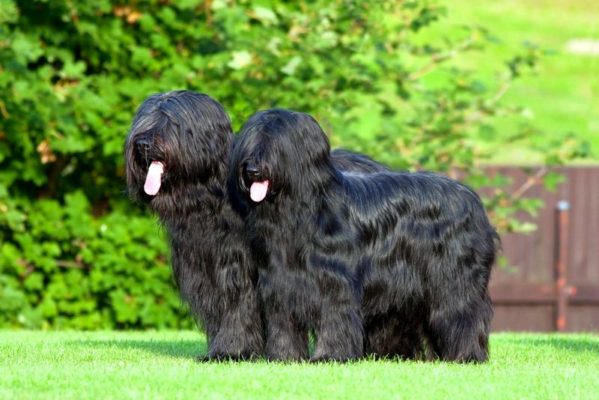Briard
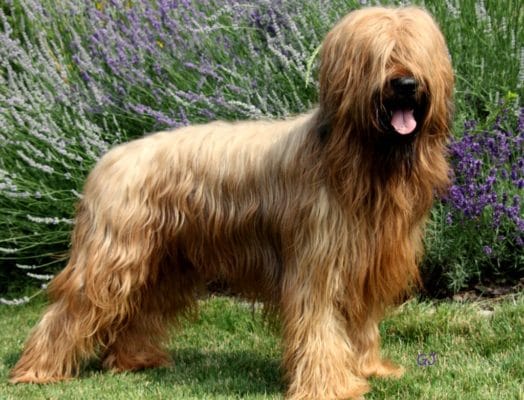
The Briard is a happy, cheerful breed, extremely loyal and intelligent. The French Shepherd can be suspicious of people it does not know, so it must be well socialized. The Briard’s loyalty means that it can become very attached to its owners and therefore anxious about separation. The Briard has a brave character.
Table of Contents
Breed Information
| Another Name | Berger de Brie, Chien de Berger français de Plaine, Briar Shepherd |
| Origin | France |
| Height | Males 62-68 cm Females 56-64 cm |
| Weight | Males 25-35 kg Females 24-28 kg |
| Fur | Long-haired breed |
| Color | Black, white, gray, brown |
| Lifespan | 11 years |
| FCI Classification | Sheepdogs and Cattledogs (except Swiss Cattledogs) |
| Group | Dogs for security, dogs for protection |
| Price | From $1000 |
Breed Photos
Origin History
The breed originates from Brie’s province in France and is considered one of the oldest European shepherd breeds, where its roots can be traced back to the twelfth century. The Briard was initially a multi-purpose farm dog, primarily used for herding and guarding. During the world wars, it was used as a search dog. The breed standard for the Briard was first established in the 1860s.
Its use in world wars almost led to the extinction of the breed, and its numbers were severely depleted. Despite this, the Briard survived and is still used today for a variety of purposes. It is found as a police and guard dog, as well as in search and rescue operations.
Appearance
Briard males are about 58-69 cm tall, and females should be slightly smaller. These dogs have an average build, with a muscular neck and strong front legs. A notable feature in the breed is the presence of a double lobe toe on the hind paw.
The French Shepherd has a round head. The muzzle is strong and broad, square with a large nose. The lips are black, and the jaws form a scissor bite with strong white teeth. The eyes are quite large and have black pigmentation around the edge of the eye. The ears are fairly short, planted high on the head, and covered with lots of long hair. These dogs are long-haired, and all kinds of colors are allowed.
Character
The Briard is a happy, cheerful breed, extremely loyal and intelligent. The French Shepherd can be suspicious of people it does not know, so it must be well socialized. The Briard’s loyalty means that it can become very attached to its owners and therefore anxious about separation. The Briard has a brave character.
Care
The Briard needs space to discharge its energy. Life in the apartment is possible with long walks. It is not desirable to keep it on a chain! This breed needs good training and proper socialization. Hair must be combed out daily with a brush and metal comb. It is also necessary to trim the claws on the clawed toes regularly.
Training
Continuous training from an early age is essential. The breed is intelligent and tends to learn quickly, even in-home training. Most Briards have a natural herding instinct. The Briard gets along with other dogs and pets if well socialized from an early age.
Common Diseases
Classified as a “Category 1 breed” by the British Kennel Club without any unique problems. However, there are some diseases whose risks need to be considered, viz:
- hip dysplasia (HD);
- congenital stationary night blindness (CSNB);
- central progressive retinal atrophy;
- ectopic ureter.
Nutrition
The diet must be balanced – either natural food or quality food. The Briard needs a diet with sufficient protein. The food must replenish energy reserves to meet all needs.
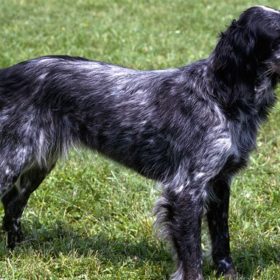 Blue Picardy Spaniel
Blue Picardy Spaniel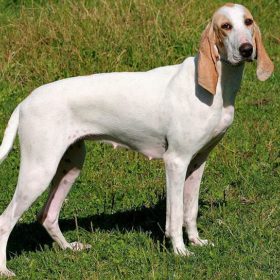 Porcelaine
Porcelaine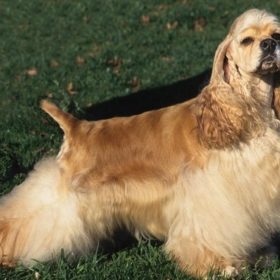 American Cocker Spaniel
American Cocker Spaniel Estonian Hound
Estonian Hound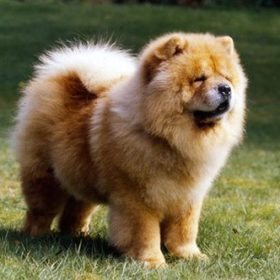 Chow Chow
Chow Chow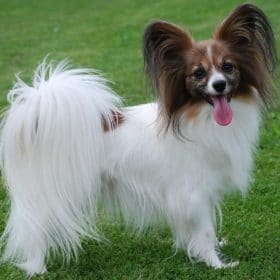 Continental Toy Spaniel
Continental Toy Spaniel